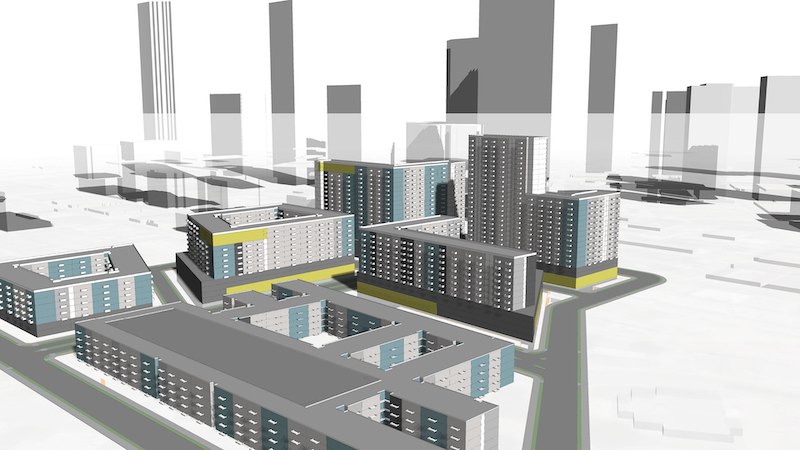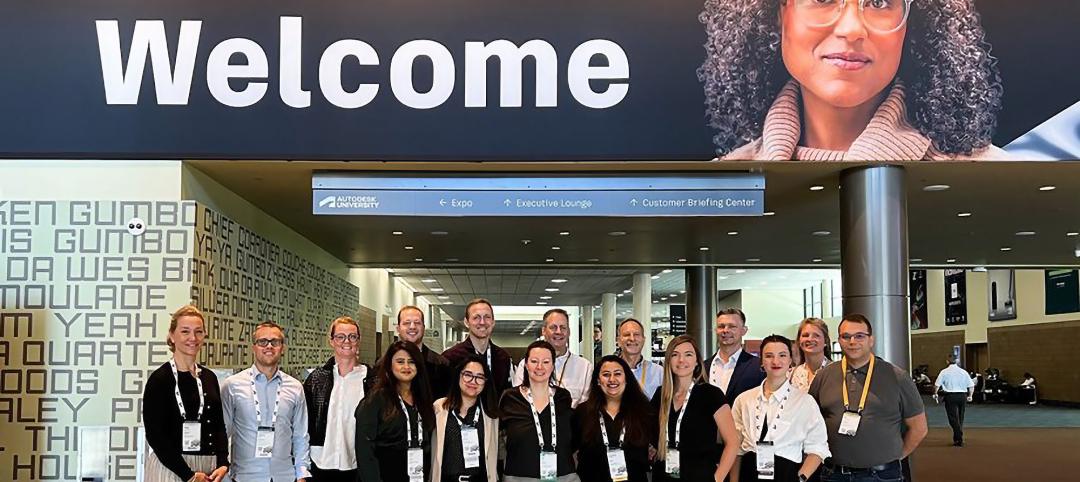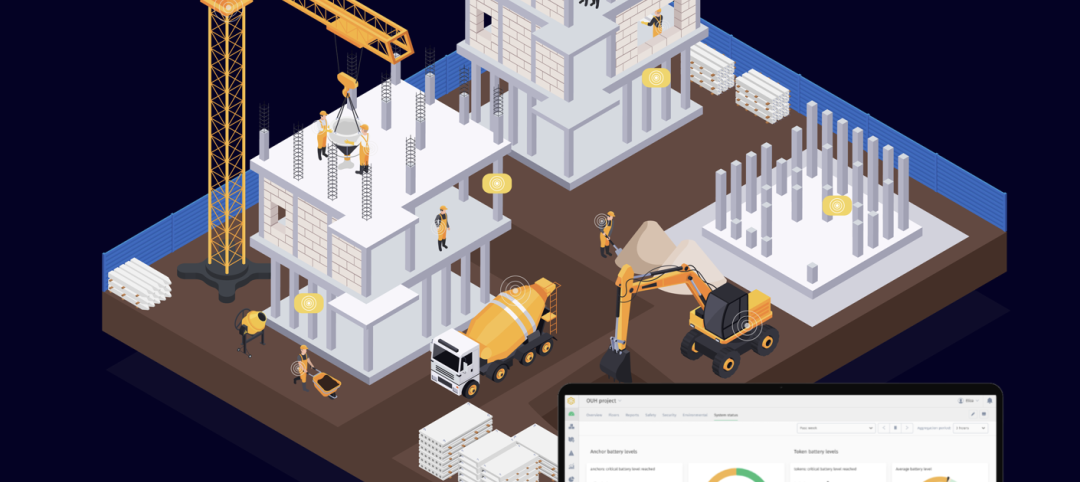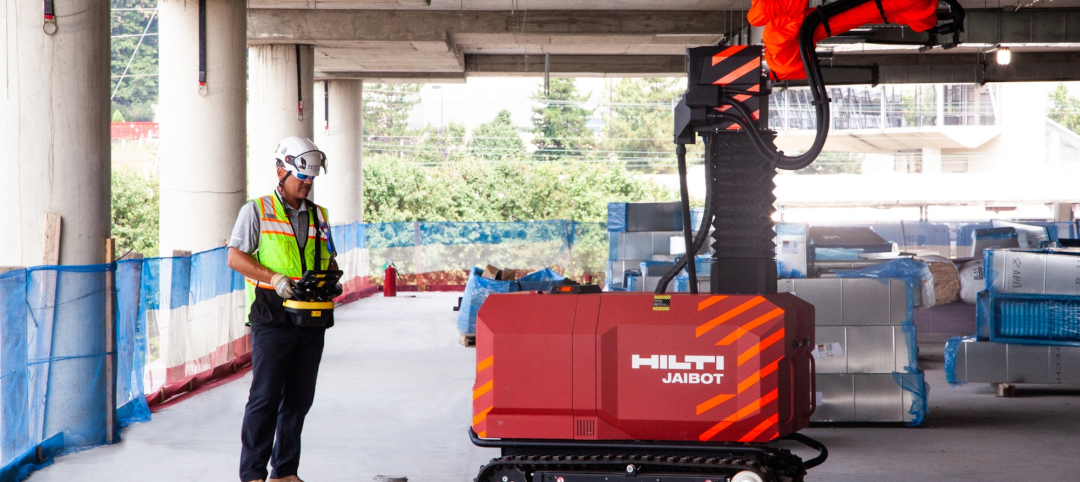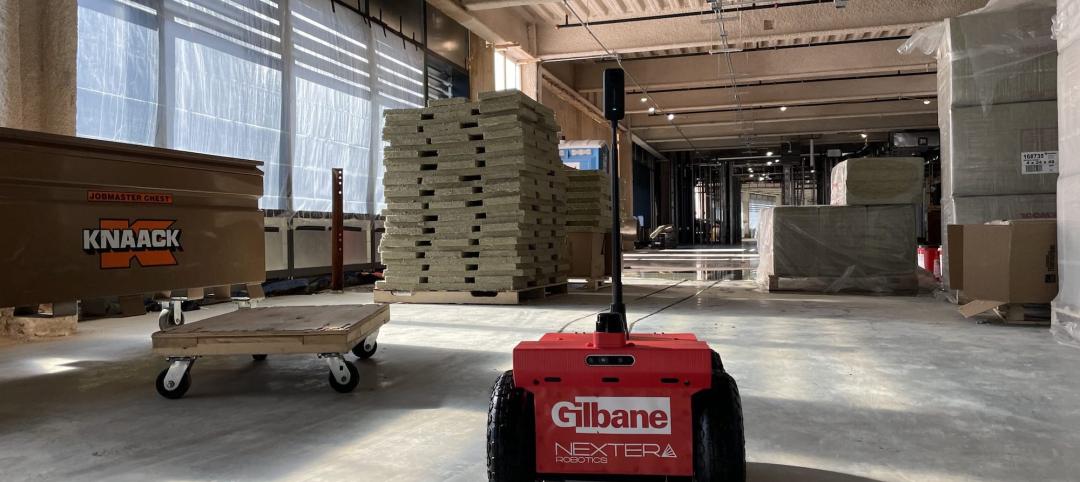Testfit
Dallas, Texas
Founded: 2017
Founders: Clifton Harness (CEO), Ryan Griege (CTO)
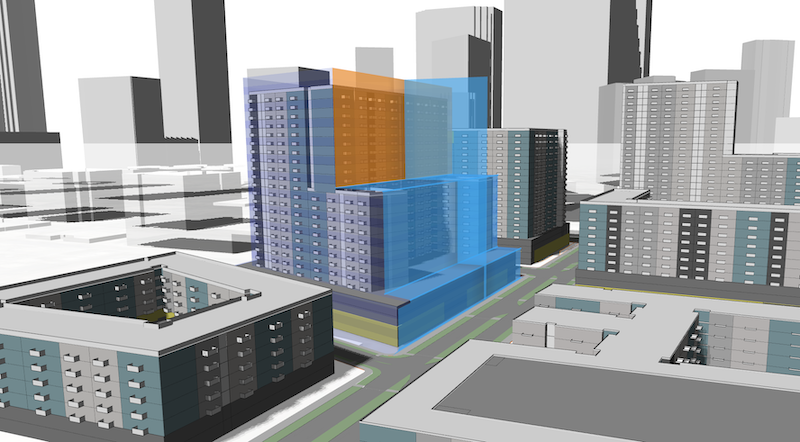 Structures can be generated in seconds with TestFit by simply inputting a building’s parameters. Building types and unit styles can be swapped instantly, massing adjustments can be made on the fly, and multiple sites can be reconfigured simultaneously.
Structures can be generated in seconds with TestFit by simply inputting a building’s parameters. Building types and unit styles can be swapped instantly, massing adjustments can be made on the fly, and multiple sites can be reconfigured simultaneously.
TestFit uses a data-driven approach to smart urban planing and removes barriers in the adoption of generative design. TestFit helps real estate developers, architects, and urban planners conduct feasibility studies and test fit sites for multifamily, hotel, modular, parking, and office development. Using proprietary AI algorithms, the company claims results can be produced in seconds. Building simulations can be run using multiple parameters such as geolocation and 3D contest building to build on a site’s GIS data, user-generated building schemes for comparative analysis, and time-of-day shadow generation. Building typologies can be selected from presets that include wrap, donut, tower, hotel, and podium or they can be created custom by users. TestFit data can be exported to Sketchup, integrated with Dynamo/Revit, and have 3D views exported for PDF. In 2020, TestFit announced $2 million in seed funding from Parkway Venture Capital.
Buildots
Tel Aviv, Israel
Founded: 2018
Founders: Aviv Leibovici (CPO), Roy Danon (CEO), Yasir Sudry (CTO)
Buildots was designed to enable maximum control of construction processes with minimal effort. The solution uses 360-degree cameras mounted to project managers’ hardhats to create a digital twin of the construction site and turn every site walk into process data. Once access to updated schedules and designs are loaded into the platform, Buildots uses artificial intelligence to automatically analyze and map all of the files to produce a detailed digital construction program to be tracked by the system. The process data is automatically aggregated and compared to the expected status of the project.
Buildots can help track and identify project loose ends, analyze project progress, calculate expected payments, and detect errors. In order to ensure a higher degree of accuracy and the most valuable insights, the Buildots algorithm is augmented with manual analysis and assistance during the initial weeks of a project. The platform includes features such as automated video analysis, per-trade throughput and progress analysis, a consolidated project view with “percent complete" and identification of the most urgent issues, and on-demand project status and gap, both detailed and aggregated. Additionally, Buildots can be easily integrated into existing management workflows.
AI Clearing
Austin, Texas
Founded: 2020
Founders: Michael Mazur (CEO), Adam Wisniewski (CTO)
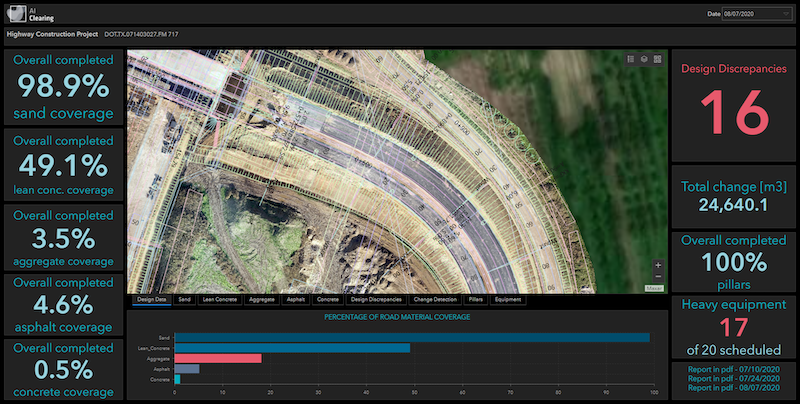 The AI Clearing dashboard (below) for a highway construction project. The dashboard is interactive and fully customizable for each project. Reports are also available in PDF format.
The AI Clearing dashboard (below) for a highway construction project. The dashboard is interactive and fully customizable for each project. Reports are also available in PDF format.
AI Clearing is an artificial intelligence-powered construction progress monitoring solution meant to help companies track the progress of work on their large civil engineering project sites. Data from schedules, CAD, BIM, and drones is used and analyzed by artificial intelligence and then sent back to the client in the form of a dashboard. This dashboard tracks metrics such as utilization of materials, completion or various layers of road surface, and the number of structures erected while also identifying even the smallest discrepancies with the design. Analyzing this data could take a human employee 20 days or more, but AI Clearing is able to do the job in 20 minutes.
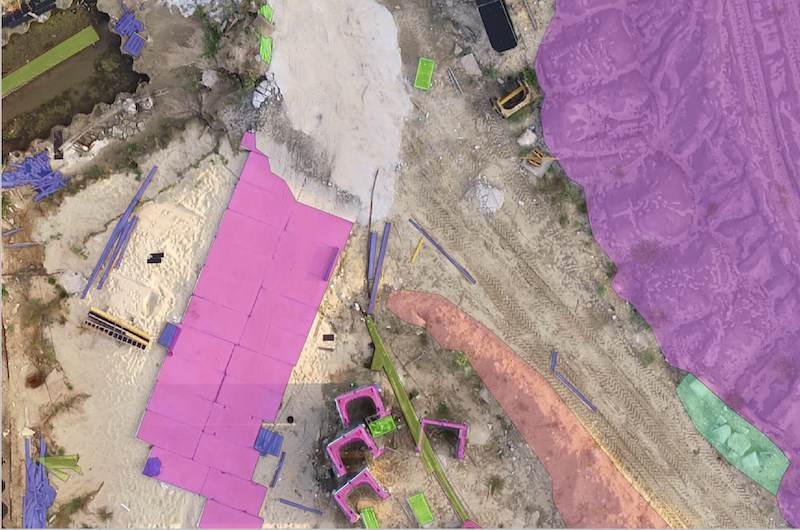 An example of an overhead drone photo with objects color-coded.
An example of an overhead drone photo with objects color-coded.
“We’ve realized that construction companies don’t want to spend a lot of time setting up systems, and they definitely don’t want to pay for yet another software license or subscription,” said Michael Mazur, CEO, Co-Founder, AI Clearing. “That’s why we structured the product the way we did. There’s one fee per project. It takes about four hours to set up the transfer of data from out clients and after that it’s automated. We pull the information in and send it back to the client in the form of analysis that’s displayed on dashboards for as many users as they want.”
Current clients include PCL Construction in the U.S. and Canada, and the French construction group Vinci. AI Clearing recently completed a $2 million seed round in December 2020 that was led by Tera Ventures from Estonia. Co-investors included Venture Partners, Innovation Nest, and other funds from places including Australia.
Related Stories
AEC Tech | Jan 27, 2023
Epic Games' latest foray into the AEC market and real estate industry
From architecture to real estate, the realm of computer-aided design hits new heights as more and more firms utilize the power of Epic Games’ Twinmotion and Unreal Engine.
AEC Tech | Jan 27, 2023
Key takeaways from Autodesk University 2022
Autodesk laid out its long-term vision to drive digital collaboration through cloud-based solutions and emphasized the importance of connecting people, processes and data.
AEC Tech Innovation | Jan 24, 2023
ConTech investment weathered last year’s shaky economy
Investment in construction technology (ConTech) hit $5.38 billion last year (less than a 1% falloff compared to 2021) from 228 deals, according to CEMEX Ventures’ estimates. The firm announced its top 50 construction technology startups of 2023.
AEC Tech | Jan 19, 2023
Data-informed design, with Josh Fritz of LEO A DALY
Joshua Fritz, Leo A Daly's first Data Scientist, discusses how information analysis can improve building project outcomes.
AEC Tech Innovation | Jan 14, 2023
CES recognizes a Dutch firm’s wearable technology for construction management
The firm’s TokenMe product offers construction managers a real-time crowd- and asset-tracking solution via low-power, location-aware radio and RFID tags and multiple sensors through which data are processed with cloud-based artificial intelligence.
Digital Twin | Nov 21, 2022
An inside look at the airport industry's plan to develop a digital twin guidebook
Zoë Fisher, AIA explores how design strategies are changing the way we deliver and design projects in the post-pandemic world.
Giants 400 | Nov 14, 2022
4 emerging trends from BD+C's 2022 Giants 400 Report
Regenerative design, cognitive health, and jobsite robotics highlight the top trends from the 519 design and construction firms that participated in BD+C's 2022 Giants 400 Report.
Contractors | Nov 14, 2022
U.S. construction firms lean on technology to manage growth and weather the pandemic
In 2021, Gilbane Building Company and Nextera Robotics partnered in a joint venture to develop an artificial intelligence platform utilizing a fleet of autonomous mobile robots. The platform, dubbed Didge, is designed to automate construction management, maximize reliability and safety, and minimize operational costs. This was just one of myriad examples over the past 18 months of contractor giants turning to construction technology (ConTech) to gather jobsite data, manage workers and equipment, and smooth the construction process.
BAS and Security | Oct 19, 2022
The biggest cybersecurity threats in commercial real estate, and how to mitigate them
Coleman Wolf, Senior Security Systems Consultant with global engineering firm ESD, outlines the top-three cybersecurity threats to commercial and institutional building owners and property managers, and offers advice on how to deter and defend against hackers.
Webinar | Oct 6, 2022
Register today! Live webinar: The future of 3D + 360° construction progress management
Learn about the value of digital site documentation and progress monitoring, how reality capture is used for site documentation, and the value of both 3D scans and 360 photos. This live webinar will take place Thursday, October 20 at 2 ET/ 1 CT.


